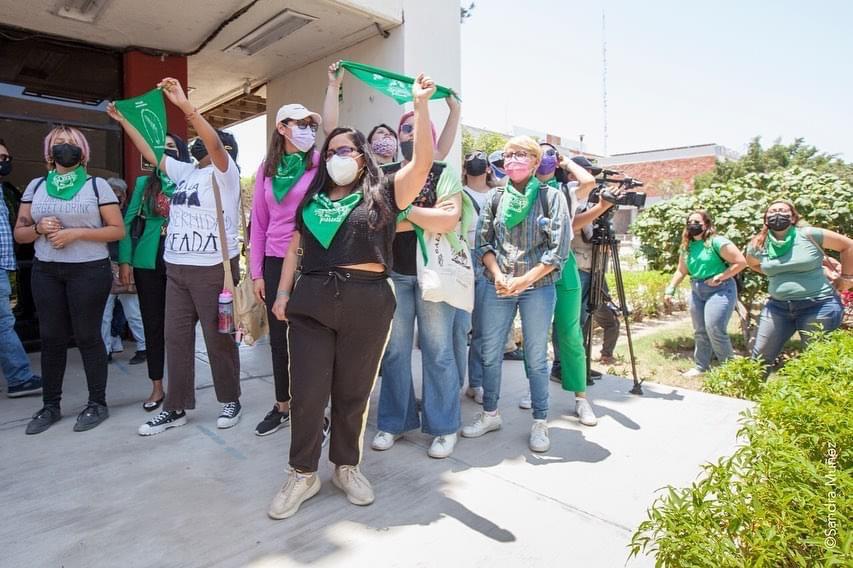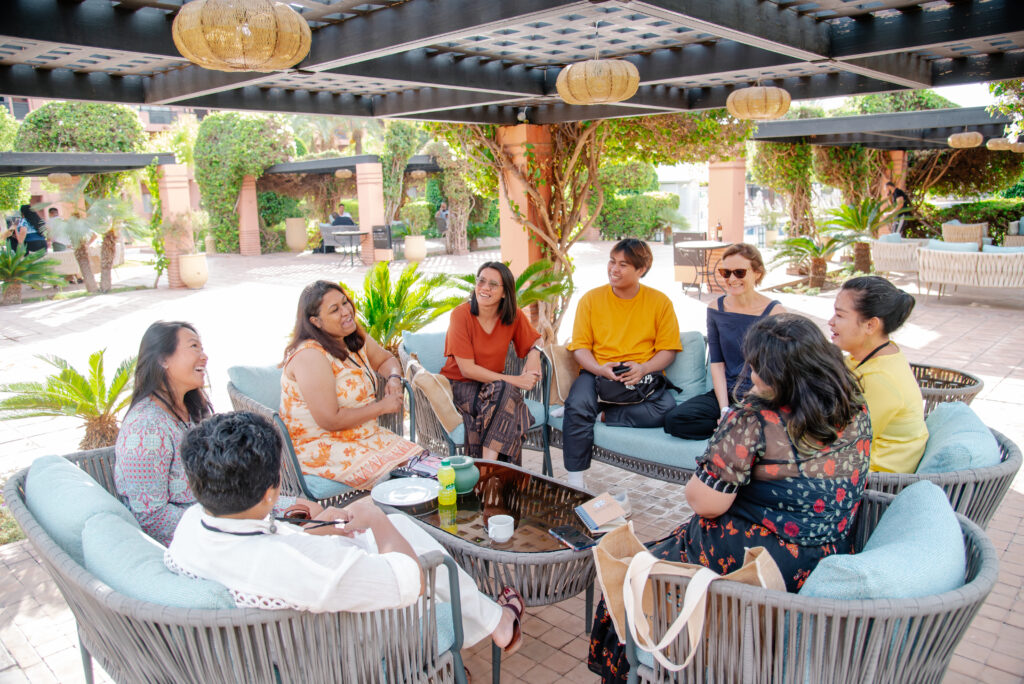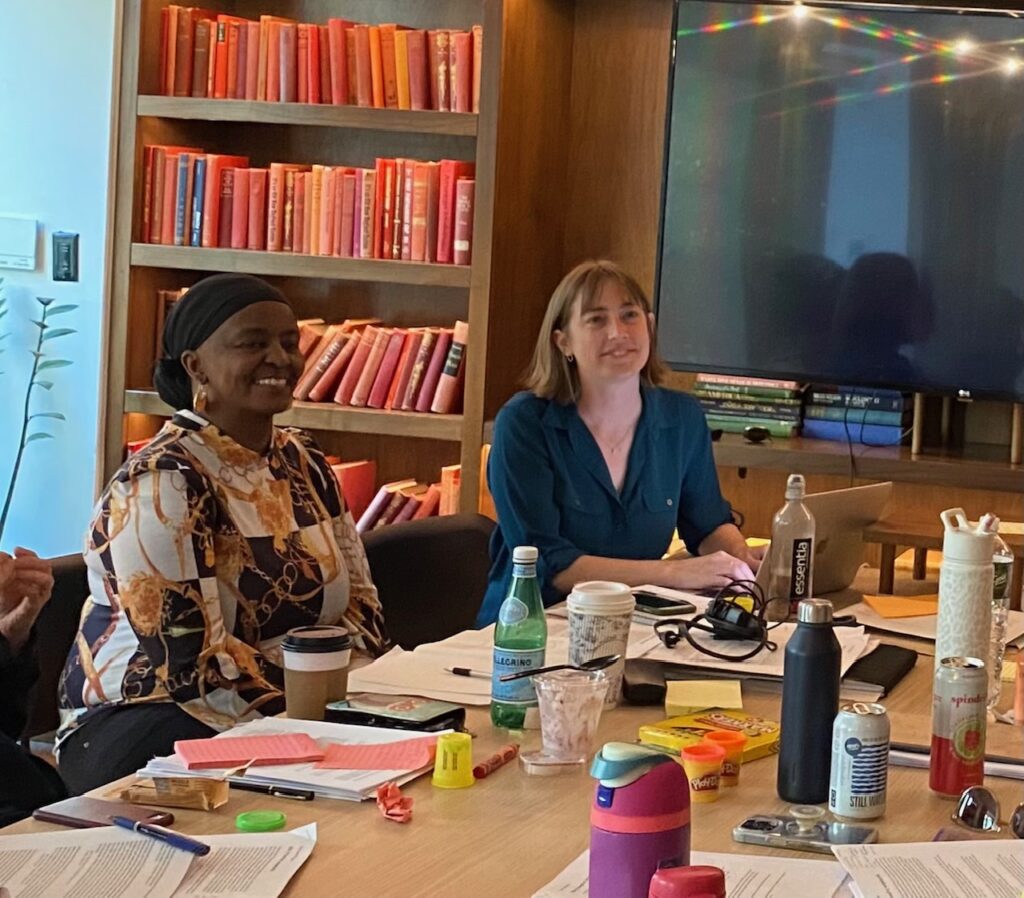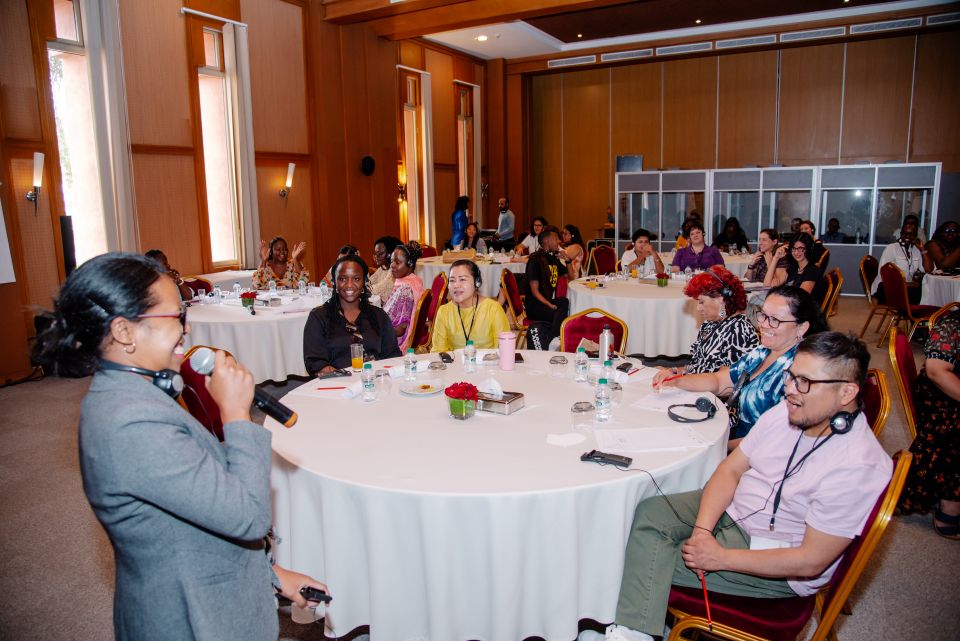How Do Local, Women-Led Organizations Accelerate Progress Toward Gender Equality?

As we mark the halfway point on the world’s journey toward the deadline for achieving the UN Sustainable Development Goals (SDGs) and the 2030 Agenda, I would like to call attention to The Gender Snapshot 2023 and its underlying message about progress toward girls’ and women’s empowerment. This practical publication, researched and produced jointly by the United Nations Development Programme and UN Women, is a grim report card on the rate and nature of the progress toward achieving Sustainable Development Goal 5, Gender Equality, at the points where it intersects with many of the other SDGs.
Reviewing the report and summarizing some of its highlights below, I worry that we are in danger of failing in its pursuit of gender equality, despite the central importance of SDG 5 to the broader 2030 Agenda and to humanity.
How is a young person in my position to feel? Is there hope for gender equality? As a communications intern at WomenStrong International, I can confidently say, “Yes.” I take heart in watching what our organization and partners do in communities around the world to make meaningful progress toward gender equality at the local level.
WomenStrong and our partners often use the SDGs in aspirational ways. Our partners serve women and girls by striving to improve their health, safety, education, empowerment, and economic security, and we help raise our partners’ voices, so they can share their proven solutions with regional and multilateral agencies and on a global stage, all in the interests of advancing progress toward gender equality.
As I review the ways in which the world isn’t measuring up to achieving the SDGs, I do so with faith in the unceasing work that we and our partners do, to strengthen girls and women in their local communities around the world so that we can achieve gender equality. All of WomenStrong’s partners support women’s wellbeing, including economic security, by empowering girls and women to live free of violence, to decide when to have children or marry, what forms of education to pursue, how they choose to become economically secure, and whether to take part in feminist movements.
What’s more, I remember that incremental progress often leads to tipping points that usher in new realities – as they have in Mexico, where abortion has now been largely decriminalized, toward which end our partners Mujeres Aliadas and Centro Mujeres have long been fervent champions.
How is a young person in my position to feel? Is there hope for gender equality? As a communications intern at WomenStrong International, I can confidently say, “Yes.”
All that reassurance I gain is transformed into a determination to support women-led organizations in accelerating progress toward achieving the SDGs. Here’s what the UNDP/UN Women status update tells us are where we need to concentrate our efforts:
SDG 1 – Eradicating Poverty: According to The Gender Snapshot 2023, progress on this front needs to be 26 times faster to reach the goal by 2030. If current trends continue, an estimated 342.4 million women and girls will still be living on less than $2.15 a day by 2030, with most residing in sub-Saharan Africa.
SDG 2 – Zero Hunger: Despite some progress, women continue to face greater food insecurity. Without strong action, close to one in four women and girls will be moderately or severely food insecure by 2030.
SDG 3 – Good Health and Wellbeing: Progress in reducing maternal mortality has come to a halt, with high rates of obstetric complications and diseases. Women in sub-Saharan Africa are 130 times more likely to die from complications during pregnancy and childbirth than women in Europe and Northern America.
SDG 4 – Quality Education: While access to education is rising among girls and boys, millions of girls still never enter the classroom or complete their education. The report predicts that by 2030, 129 million girls and young women across the globe may be out of school.
SDG 5 – Gender Equality: Deeply rooted biases against women, gaps in access to sexual and reproductive health, fair political representation, and economic security are preventing tangible progress. We also lack 44% of the data required to track movement toward SDG 5.
SDG 6 – Clean Water and Sanitation: While more women and girls than previously now have access to safe drinking water, in large measure thanks to immense progress under the previous MDG agenda, water stress continues to threaten progress, particularly in regions like sub-Saharan Africa and Oceania, where the impacts of climate change are increasingly felt.
SDG 7 – Affordable and Clean Energy: Many women still lack access to electricity and clean cooking fuels. About 341 million women and girls will still lack access to electricity by 2030, primarily across the sub-Saharan region.
SDG 8 – Decent Work and Economic Growth: Women’s labor force participation remains significantly lower than men’s, and women continue to earn far less. In 2019, women’s share of total earned labor income was 34%.
SDG 9 – Industry and Innovation: Women’s representation in STEM fields and innovation remains low. Only one in five STEM jobs is held by a woman.
SDG 10 – Reduced Inequalities: Discrimination against women persists in the forms of racial and sexual-orientation discrimination, HIV-related and disability stigma, and more.
SDG 11 – Sustainable Cities and Communities: Rapidly expanding urbanization without sufficient attention to women’s risks and needs in cities can worsen sexual violence and inequality.
SDGs 12 – 15 – Responsible Consumption and Production, Climate Action, Life on Earth and Underwater: Climate change disproportionately affects poor women. Without global efforts to change the world’s current path, climate change may push millions more women and girls into conditions of displacement, poverty, and food insecurity. Including women at all levels of planning for climate mitigation and adaptation is essential for the health of our planet and everyone on it.
SDG 16 – Peace, Justice, and Strong Institutions: Armed conflicts are escalating globally, with a 50% increase in women and girls living in conflict-affected contexts since 2017. Women in these contexts face acute poverty, poor nutrition , and a severe risk of violence.
SDG 17 – Partnerships: Bilateral assistance aimed directly at moving gender equality forward has reached dangerously low levels.
To make significant strides towards gender equality by 2030, we cannot do what we’ve done before—take orders from “on high,” from traditional power centers. But looking at this list and feeling disheartened is not the way, either; instead, we at WomenStrong feel a keener call to create partnerships, as the SDGs advise.
We also know that it’s time to shape partnerships in new ways. It’s time to raise the voices of girls and women in their communities, so that they can share their needs, find new visibility, and gain the respect, recognition, and investment they deserve. Supporting WomenStrong helps our partners day by day and step by step in making that community-based progress toward gender equality that our sisters in Mexico have helped achieve, with regard to reproductive rights. Get involved, and donate to WomenStrong today.
About the Author

Margaux Sorenson, WomenStrong Intern, is a passionate advocate for women and girls’ rights and freedoms, driven by a deep commitment to social change and equality. Margaux holds an undergraduate degree in Women’s Health Disparities and Community Action from the University of Michigan Ann Arbor and a Master’s in Social Work (MSW) from the University of Denver, with a concentration in Organizational Leadership & Policy Practice. Throughout her career, she has dedicated herself to research and advocacy, working to advance the rights of women and girls, both locally in Colorado and on the international stage. Margaux has previously worked with Colorado-based women’s and victim rights organizations to strengthen survivor protections and privacy in Colorado. Her contributions extend globally, including involvement in impactful campaigns such as What Women Want with the White Ribbon Alliance. Beyond her advocacy work, Margaux is an outdoor enthusiast who thrives in Colorado’s natural beauty, indulging in activities like hiking, skiing, camping, fly fishing, and enjoying a good book on her front porch.




